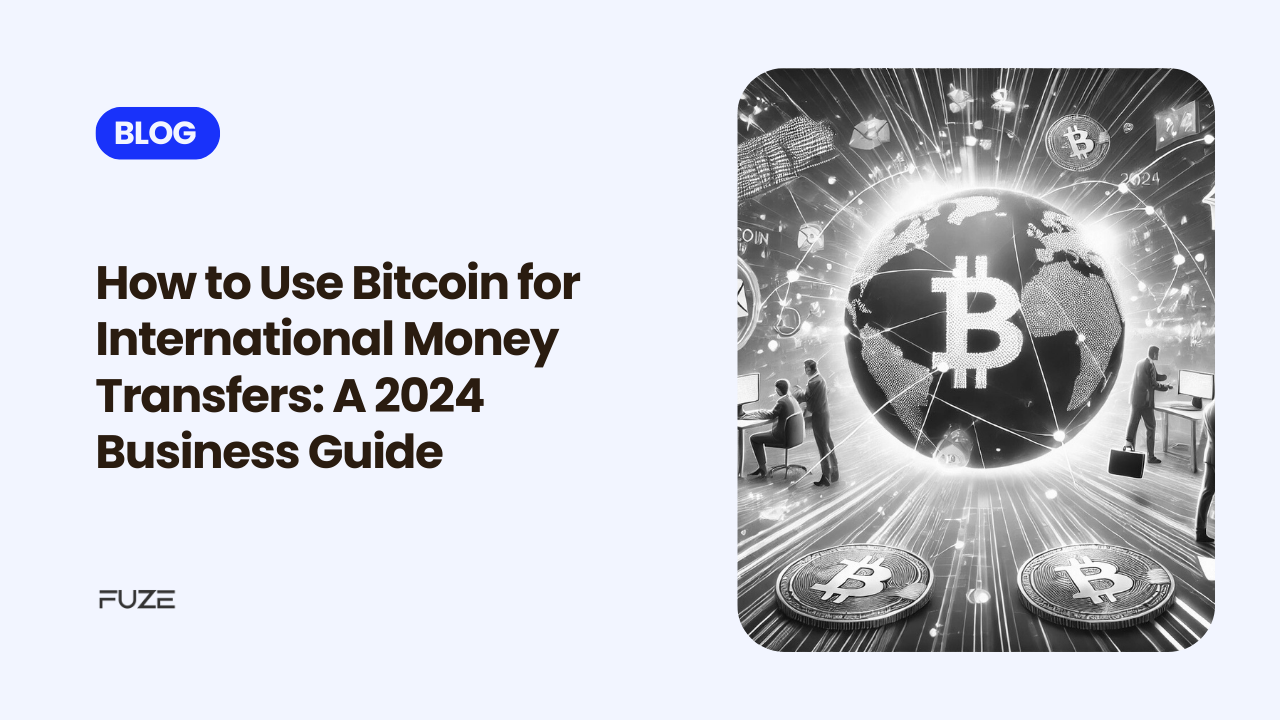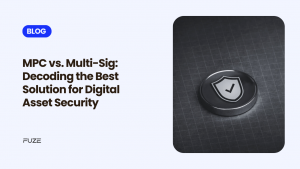Global commerce is expanding like never before and businesses are actively seeking smarter, more efficient ways to handle cross-border payments. Bitcoin for international money transfer has emerged as a transformative solution, offering lower fees, faster transaction times, and unparalleled accessibility. This decentralised digital currency allows businesses to move money across borders with greater ease, eliminating many of the hurdles associated with traditional banking systems. In this guide, we will explore how Bitcoin can optimise your payment processes, highlighting the key benefits, potential risks, and the practical steps for adopting it in your financial operations.
Why Use Bitcoin for International Money Transfers?
Bitcoin’s decentralised nature makes it a valuable tool for businesses looking to bypass traditional financial systems, which are often time-consuming and costly. Without the need for intermediary banks, Bitcoin can facilitate direct transactions across borders, ideal for businesses worldwide.
Unlike fiat currency transfers, which may involve high foreign exchange fees and varying settlement times, Bitcoin offers a more consistent, secure, and often faster alternative. By embracing Bitcoin for international money transfers, businesses can optimise cash flow and reduce transaction costs.
Lower Fees and Faster Settlements
One of the most compelling reasons for businesses to consider Bitcoin is the potential for lower transaction fees. Traditional international transfers typically incur various fees, including foreign exchange rates, intermediary bank charges, and processing fees. These can add up, especially for smaller transactions or when multiple transfers are required.
Bitcoin, on the other hand, operates on a peer-to-peer network, bypassing intermediaries and minimising fees. Even though Bitcoin network fees can fluctuate, they are often significantly lower than traditional banking fees, particularly for high-value transactions. Additionally, settlements are often completed within minutes or hours rather than days, making Bitcoin ideal for urgent or time-sensitive payments.
Key Benefits of Bitcoin for Cross-Border Payments
- Enhanced Accessibility: Bitcoin’s global nature means it is accessible in almost every part of the world, allowing businesses to transact in regions where traditional banking infrastructure may be limited or costly.
- Improved Transparency and Security: All Bitcoin transactions are recorded on a public ledger (the blockchain), which offers transparency and traceability. The immutability of blockchain technology provides an added layer of security, reducing the risk of fraud and chargebacks.
- Decentralised Control: With Bitcoin, there is no central authority overseeing the transaction. This means businesses can avoid delays related to regulatory controls or cross-border compliance requirements that may slow down traditional payments.
- No Currency Conversion Hassles: Since Bitcoin is a global digital asset, it can eliminate the need for currency conversion, particularly helpful for businesses with operations in multiple countries. Instead of dealing with fluctuating exchange rates, companies can settle transactions in Bitcoin directly.
- Financial Inclusion: Bitcoin also promotes financial inclusion by enabling businesses to transact with partners in developing regions who may lack access to conventional banking services. This makes it easier to expand into new markets without traditional financial barriers.
Understanding the Risks of Bitcoin Transfers
While Bitcoin offers various benefits for international transfers, businesses should be aware of the associated risks:
- Volatility: Bitcoin is known for its price volatility. A payment made in Bitcoin could have different value by the time it is received, affecting revenue and expenses. Businesses often mitigate this risk by immediately converting Bitcoin to a stable currency upon receipt.
- Regulatory Uncertainty: Regulations for cryptocurrencies vary widely across countries and are still evolving. Companies should stay informed about the legal requirements in their operating regions to ensure compliance.
- Security Considerations: While blockchain technology is highly secure, the risk of cyber attacks on crypto wallets remains. Businesses need to implement strong cybersecurity measures, including secure wallets and multi-factor authentication, to protect their funds.
- Irreversible Transactions: Bitcoin transactions are irreversible, meaning any errors in the amount or destination cannot be corrected once submitted. Companies should double-check details and set up internal protocols to avoid costly mistakes.
Step-by-Step Guide to Transferring Money with Bitcoin
Ready to start using Bitcoin for international money transfers? Here’s a step-by-step guide to get you started:
- Set Up a Bitcoin Wallet: First, you’ll need a secure digital wallet for sending and receiving Bitcoin. Choose between a hot wallet (online) for easy access or a cold wallet (offline) for enhanced security.
- Buy Bitcoin on an Exchange: Purchase Bitcoin through a reputable cryptocurrency exchange. Be mindful of exchange fees, and consider exchanges with strong security measures.
- Verify Payment Details: Double-check the recipient’s Bitcoin wallet address, as transactions are irreversible. Ensure that both parties agree on the amount of Bitcoin to be sent.
- Send the Payment: Use your wallet to initiate the transfer, and enter the recipient’s address and amount. Review transaction fees, which may vary depending on the network’s current demand.
- Confirm the Transaction: Once the transaction is processed, it will be recorded on the blockchain. Provide the recipient with the transaction ID for tracking purposes.
- Convert to Fiat (If Needed): To minimise exposure to Bitcoin’s price volatility, the recipient may choose to convert the received Bitcoin into a fiat currency immediately. This can be done through a cryptocurrency exchange.
How Bitcoin Enhances Global Business Payments
Bitcoin is transforming the landscape of global payments by making international transactions more accessible and efficient for businesses of all sizes. Here’s how it enhances global business payments:
- Faster Payment Settlement: Bitcoin payments typically settle faster than bank transfers, which can take several business days. For companies with time-sensitive needs or urgent cash flow requirements, Bitcoin’s fast processing times provide an invaluable advantage.
- Cost-Efficiency for Small and Large Transactions: Bitcoin’s low transaction fees benefit both large corporations handling high-value transactions and small businesses making frequent, smaller payments. This cost efficiency levels the playing field and allows businesses to operate more freely across borders.
- Enables Remote Work and Freelance Payments: As remote work and freelance employment become increasingly common, businesses can use Bitcoin to pay freelancers in different countries without needing to navigate complex international banking rules.
- Enhances Competitive Edge: By adopting Bitcoin for international money transfers, companies can position themselves as forward-thinking, innovative, and adaptable to new technologies, giving them a competitive edge in an increasingly digital economy.
Conclusion
Bitcoin is an efficient, cost-effective solution for international money transfers that offers businesses a way to streamline cross-border payments, reduce fees, and enhance transaction speed. By understanding both the benefits and risks, companies can implement Bitcoin thoughtfully as part of their global payment strategy. With the right safeguards in place, using Bitcoin for international money transfers can improve cash flow, enhance security, and support business expansion across borders.
As digital assets like Bitcoin continue to reshape the future of finance, businesses that embrace these tools are well-positioned to thrive in an increasingly globalised economy.
Fuze, a leading provider of digital asset infrastructure, offers a comprehensive suite of solutions to enable businesses to seamlessly integrate Bitcoin payments into their operations. With its global reach, businesses can tap into international markets, attract crypto users, and benefit from enhanced security and transparency through blockchain technology.
Fuze’s customizable solutions ensure businesses of all sizes can easily adopt Bitcoin payments without major infrastructure changes. In essence, Fuze simplifies the adoption of Bitcoin payments for businesses by offering secure, easy-to-integrate solutions that lower transaction costs, enhance global reach, and provide better payment flexibility.
Disclaimer: Virtual assets carry significant risks, including high volatility and potential loss of your entire investment. They are not backed by governmental protections, and recourse may be limited in case of loss. Always assess your risk tolerance, fully understand the risks, and seek independent financial advice if needed before investing.
Frequently Asked Questions
1. Do I need to change my current payment system to accept Bitcoin?
No, Fuze integrates seamlessly into your existing payment systems, allowing you to accept Bitcoin without major changes.
2. How quickly are Bitcoin transactions processed through Fuze?
Bitcoin payments through Fuze are processed instantly, ensuring a smooth and quick transaction experience for both businesses and customers.
3. Are Bitcoin payments cheaper than traditional payment methods?
Yes, Bitcoin payments typically have lower transaction fees compared to traditional credit card payments, especially for international transactions.
4. Do I need to be tech-savvy to accept Bitcoin?
No, most Bitcoin payment processors offer user-friendly tools and integrations that make it easy for businesses of all sizes to accept Bitcoin without needing technical expertise.
5. Are Bitcoin transactions irreversible?
Yes, Bitcoin transactions are irreversible, which eliminates chargebacks. However, this also means businesses need to ensure they have reliable systems in place for verifying transactions.







